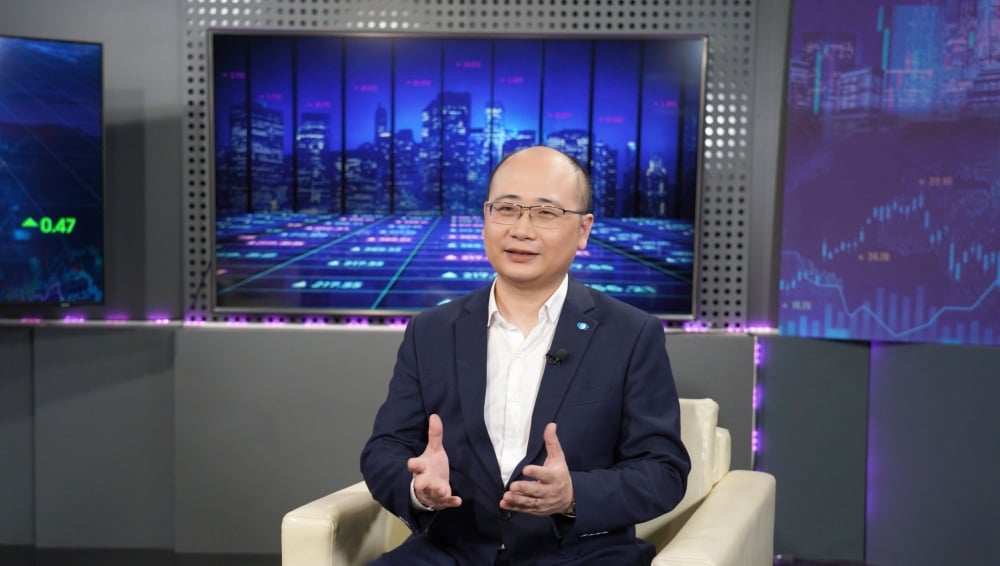 |
| Mr. Nguyen Ky Minh, Chief Economist of Guotai Junan Vietnam Securities Joint Stock Company (IVS) |
Amid rising global trade tensions due to US tariff policies, Vietnam faces both challenges and opportunities to maintain its economic growth momentum. Mr. Nguyen Ky Minh, Chief Economist of Guotai Junan Vietnam Securities Joint Stock Company (IVS), has deeply analyzed the impact of these policies on the economy, businesses, stock market and prospective industries in 2025.
“With a high economic openness, Vietnam is vulnerable to global trade fluctuations, but strategic advantages such as a 90-day tax deferral, 6.93% GDP growth in the first quarter of 2025, and strong domestic policies will help Vietnam weather the storm, aiming for an 8% growth target this year,” Mr. Minh emphasized.
The impact of global trade policy
According to Mr. Nguyen Ky Minh, the US tariff policies under President Donald Trump are not surprising, as he has mentioned them many times before. However, the scope and level of tariffs are shocking: a basic rate of 10% globally, 125% for China, and 46% for Vietnam, targeting strategic industries such as electric vehicles, semiconductors, solar energy, as well as traditional industries such as steel and pharmaceuticals. The US's goal is to restructure the supply chain, reduce the trade deficit, and contain China's technological influence, but these policies increase the risk of disruption to international trade.
The reactions of countries are divided into three groups. Some countries such as Israel, Argentina, and Japan accept the tariffs. Countries such as Thailand and Malaysia both accept and diversify their trading partners. The third group, led by China, responds with equivalent tariffs. Mr. Minh noted that China's response is calm but resolute, in line with its position as a large and progressive economy in the "Made in China 2025" plan. China not only imposes counter-tariffs but also seeks multilateral solutions, strengthening its role as a support for global partners. The increasingly fierce competition with the US makes it difficult for China to make concessions on tariffs, but it is still willing to dialogue to resolve disagreements.
These developments have made the global economic outlook fragile. Goldman Sachs has lowered its forecast for China’s GDP growth in 2025 to 4%, while Morgan Stanley has kept it at 4.5% but warned of increased risks. Minh pointed out two main consequences: a decline in aggregate demand due to US spending cuts and a rise in production costs in the short term due to the need to shift production. The US Federal Reserve Governor’s comments about “slower growth and higher inflation” reflect investors’ concerns. World trade may enter a “post-globalization” phase, shifting from multilateral to bilateral and regional, creating both challenges and opportunities for countries like Vietnam.
Opportunities and strategies for Vietnam in a volatile context
With an economic openness of 165% (the ratio of import-export turnover to GDP) by the end of 2024, Vietnam is particularly sensitive to fluctuations in global trade. Mr. Minh warned that if the 46% US tariff is fully applied, GDP growth could fall by 2-3 percentage points, severely impacting key export industries such as textiles, wood, seafood and electronic components, which are heavily dependent on the US market. Profit margins of these industries could fall by 5-20% from the second half of 2025 if the tariff is maintained, affecting orders, production costs and logistics.
However, Vietnam is effectively taking advantage of the 90-day tax deferral. Mr. Minh emphasized that this move has prompted export and FDI enterprises to increase orders to stock up before the tax is imposed. With the current tax rate of only 10%, many enterprises are taking advantage of this competitive advantage. GDP growth of 6.93% in the first quarter of 2025, the highest in six years, shows strong momentum. Accelerating production in the second quarter could maintain the growth momentum for the whole year, bringing Vietnam closer to the ambitious target of 8%. The sharp drop in world oil prices due to concerns about a decline in medium- and long-term demand has also helped reduce domestic gasoline prices, helping to control inflation and creating room for monetary policies to stimulate the economy.
Regarding businesses, Mr. Minh said the impact depends on the customer structure and their reaction to the trade war. Businesses with US customers may benefit if orders increase to “evade taxes” or if Vietnam negotiates a lower tax rate, expected at 10–15%. On the contrary, if customers avoid Vietnam due to concerns about unexpected policies in the next 90 days, businesses will face disadvantages. He recommended that businesses restructure their output markets, shifting to Europe, Japan, South Korea and ASEAN to reduce dependence on the US, although this process requires time and adaptability.
According to Mr. Minh, the Vietnamese stock market will experience strong fluctuations but also be full of opportunities. The implementation of the KRX system in May 2025, after many delays, is a turning point. This system improves the quality of transactions with features such as T+0 transactions, short selling, odd-lot transactions, and is also a premise for Vietnam to be upgraded to an emerging market according to FTSE criteria, as early as September 2025. This event will attract medium- and long-term foreign capital flows, strengthening investor sentiment in the second quarter of 2025, when positive information about economic growth, orders and trade negotiations is expected to prevail. However, from 2026, Mr. Minh warned that rising global commodity prices will put pressure on inflation and interest rates, indirectly affecting the valuation of Vietnamese enterprises.
For investors, Mr. Minh recommends a proactive strategy, avoiding following conflicting foreign media information. Instead, they should focus on businesses with solid foundations, customers less affected by the trade war, or in industries important to the US that are exempted or have tax deferrals. He recommends that investors wait patiently for the results of trade negotiations to assess the real impact on stock groups.
Industry prospects and investment orientation Mr. Minh assessed that industries focusing on domestic demand will have outstanding prospects in the context of global trade uncertainty. The public investment and steel groups benefit from key infrastructure projects such as the North-South Expressway. IVS forecasts growth of 10-12% for the public investment sector and 8-10% for the steel sector in 2025, thanks to strong domestic demand and the government's infrastructure investment orientation. Essential consumer industries such as food, beverage and electricity also maintain stability, becoming safe destinations for investment cash flows. The financial sector, especially banking, is forecast to grow by 10-15%, but Mr. Minh advises investors to choose carefully, prioritizing joint stock commercial banks such as MBB and ACB, which focus on credit for domestic enterprises and have stable ecosystems. These growth rates are still attractive compared to current interest rates, suitable for investors to allocate part of their portfolio. In addition, sectors that are less dependent on the US such as technology, software (notably FPT) and pharmaceuticals are also positively evaluated thanks to their stable value chains and ability to expand the domestic market. Mr. Nguyen Ky Minh's analysis shows that Vietnam can take advantage of its internal advantages, from public investment policies, stimulating consumption to flexible trade negotiations, to overcome global storms. For investors, prioritizing domestic industries, businesses with diversified markets and effective risk management will be the key to seizing opportunities in this challenging context. |
Source: https://thoibaonganhang.vn/chung-khoan-bien-dong-manh-con-co-hoi-163232.html


![[Photo] Prime Minister Pham Minh Chinh chairs meeting to review preparations for trade negotiations with the United States](https://vphoto.vietnam.vn/thumb/1200x675/vietnam/resource/IMAGE/2025/5/6/1edc3a9bab5e48db95318758f019b99b)
![[Photo] Prime Minister Pham Minh Chinh chairs the regular Government meeting in April 2025](https://vphoto.vietnam.vn/thumb/1200x675/vietnam/resource/IMAGE/2025/5/6/48eb0c5318914cc49ff858e81c924e65)


![[Photo] Prime Minister Pham Minh Chinh receives Mr. Tomas Heidar, Chief Justice of the International Tribunal for the Law of the Sea (ITLOS)](https://vphoto.vietnam.vn/thumb/1200x675/vietnam/resource/IMAGE/2025/5/6/58ba7a6773444e17bd987187397e4a1b)




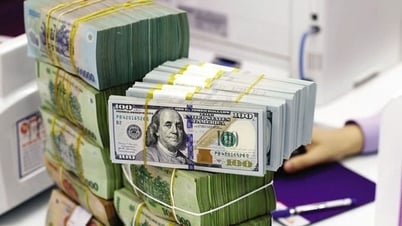







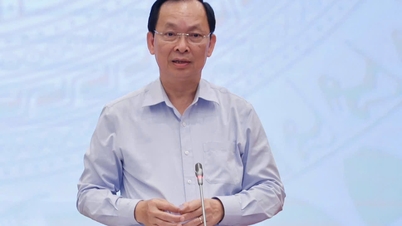

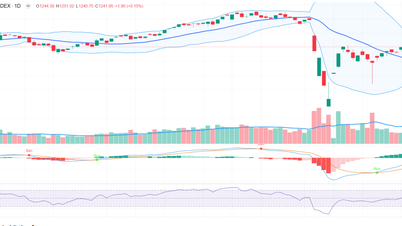
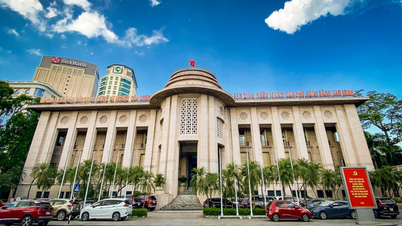
![[Infographic] Vietnam attracts 13.82 billion USD FDI, up 39.9% over the same period](https://vphoto.vietnam.vn/thumb/402x226/vietnam/resource/IMAGE/2025/5/6/e177d30fe39948a2b07e62303d2b3d93)




























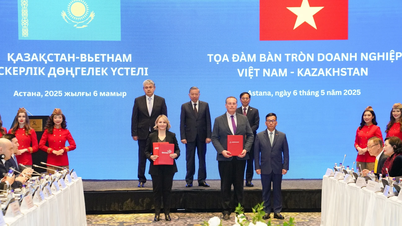





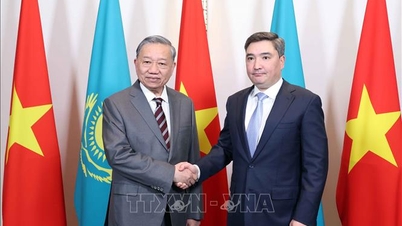


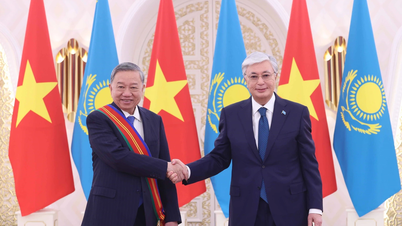

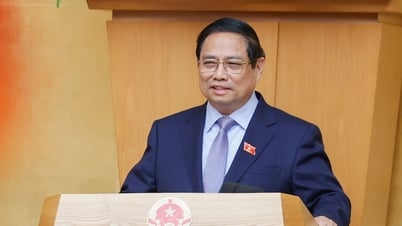














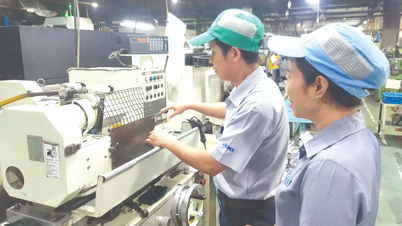

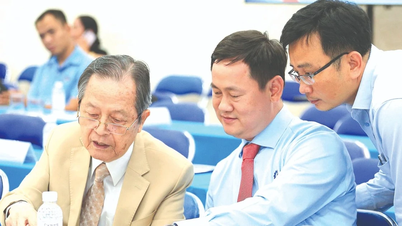
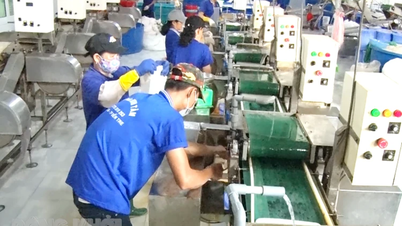






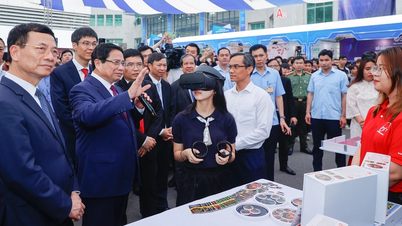


Comment (0)